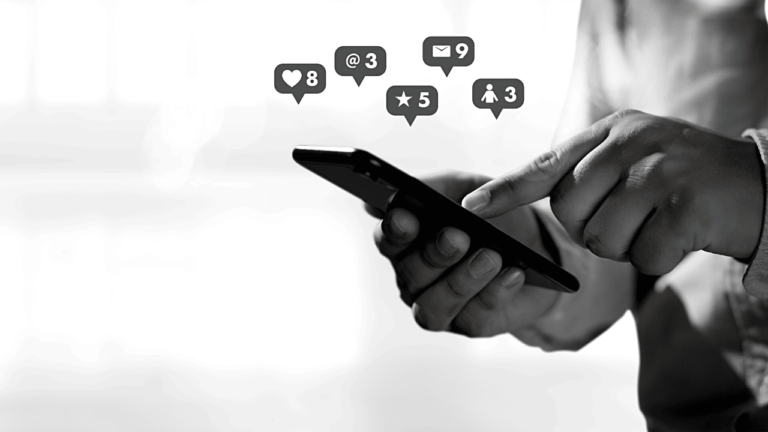B2B Influencer Marketing: How to Build Trust and Drive Demand
It’s easy to picture influencer marketing.
We see the polished photos and the aspirational lifestyles splashed across social media platforms. But shift the lens from consumer goods to the complex world of business-to-business transactions, and the picture changes dramatically.
It becomes less about fleeting trends and more about enduring trust.
This isn’t your typical influencer marketing; it’s a strategic game played where expertise reigns supreme and relationships are the real currency.
Forget the mega-celebrities; we’re entering the realm of the industry influencers, the thought leaders, the individuals whose insights shape decisions worth millions.
Understanding this difference is key to unlocking one of the most potent, yet often misunderstood, forces in modern marketing.
What You Need to Know
- Credibility and specialized knowledge outweigh sheer follower count. B2B influencers are respected for what they know.
- Influence is built over time through consistent value, not one-off promotions. Trust is paramount when multiple decision-makers are involved.
- Success hinges on co-creation, where the influencer’s expertise and the brand’s message merge authentically. Think webinars, whitepapers, and guest blogging, not just sponsored posts.
- Reaching the right target audience of professionals and decision-makers is far more valuable than broad, generic exposure.
- Measuring success involves tracking lead quality, engagement within specific professional circles, and impact on brand credibility, not just likes and shares.
- The B2B audience is discerning. Any hint of disingenuous promotion can damage both the influencer’s and the brand’s reputation.
The Shifting Sands: Why B2B Influence Matters Now More Than Ever
Why has this specific marketing sub-genre surged to prominence? It wasn’t born in a vacuum. It’s a response, a correction perhaps, to fundamental shifts in how businesses operate and how professionals consume information.
The old guard of marketing strategies is finding its authority waning.
The Fading Echo of Traditional Authority
Think about the traditional levers of B2B marketing: trade shows, cold outreach, glossy brochures, and even standard paid advertising.
While not obsolete, their effectiveness has been diluted in the digital age. Decision-makers are bombarded with messages, developing sophisticated filters against overt sales pitches.
Trust in traditional advertising has eroded, mirroring trends seen across consumer markets. People crave authenticity and peer validation, even in professional contexts.
The pronouncements from corporate HQs often carry less weight than the insights shared by a respected peer or thought leader on LinkedIn.
This created a vacuum, a need for credible voices that cut through the noise.
The Quest for Genuine Expertise
In complex fields like information technology, finance, or enterprise software, decisions aren’t made lightly.
Potential customers aren’t just buying a product; they’re investing in a solution, often involving significant financial outlay and organizational change. They need deep, reliable information.
They turn to industry experts, analysts, and seasoned practitioners – individuals who possess demonstrable knowledge and experience.
These experts, through their content, conference appearances, and online discussions, become natural points of influence.
Businesses recognized that aligning with these voices offered a shortcut to brand credibility that was increasingly hard to build through conventional means alone.
The Rise of the Digital Water Cooler
Social media platforms, particularly professional networks like LinkedIn, have become the new town squares for industry discourse. Ideas are exchanged, reputations are built, and trends emerge.
This digital transformation hasn’t just changed communication; it has democratized influence.
An insightful engineer sharing technical analyses, a consultant offering sharp strategic takes, or even existing customers sharing client success stories can build significant followings among relevant target audiences.
This decentralized landscape makes identifying and engaging with the right influencers both critical challenges and a massive opportunity for marketers. It’s less about broadcasting and more about participating in the conversations that matter.
Identifying the Right B2B Influencers
Embarking on a B2B influencer marketing campaign without knowing who to partner with is like sailing without a compass. The temptation is to look for familiar signals – high follower counts, perhaps – but in the B2B sphere, these can be misleading.
The real value lies deeper.
The Diverse Faces of B2B Influence
Unlike the often homogenous world of B2C influencers, B2B influence comes in many forms. Recognizing these archetypes is the first step:
- Industry Analysts & Researchers: Individuals working for firms like Gartner or Forrester, or independent analysts whose reports and opinions shape market perceptions. Their influence is rooted in data and rigorous analysis.
- Thought Leaders & Academics: Professors, authors, and speakers known for pioneering new ideas or frameworks within an industry. They influence through intellectual authority.
- Practitioners & Experts: Seasoned professionals (engineers, marketers, consultants, developers) respected by their peers for their hands-on knowledge and practical insights shared via blogs, social media, or forums.
- Internal Advocates & Employees: Your own knowledgeable staff, particularly those active in industry circles, can be powerful influencers. Employee advocacy programs formalize this.
- Customer Advocates: Satisfied customers, especially those from well-known brands, sharing genuine client success stories and positive experiences. Their word-of-mouth influence is incredibly potent.
- Niche Content Creators & Micro-influencers: Individuals focused on very specific segments within an industry (e.g., a particular software niche, a specific marketing technique). They may have smaller audiences, but those audiences are highly relevant and engaged.
Tools and Tactics for Discovery
Finding these individuals requires a mix of technology and human insight. Relying solely on the best influencer marketing platform might surface obvious candidates but miss the hidden gems.
A multi-pronged approach is best:
- Platform Power: Utilize specialized B2B influencer marketing platforms designed to identify experts based on topic relevance, engagement quality, and audience demographics, going beyond simple follower count.
- Social Listening: Monitor conversations on LinkedIn, Twitter, industry forums, and relevant subreddits. Who is consistently driving insightful discussions in your key areas?
- Event Speaker Lists: Conferences and webinars often feature genuine thought leaders. Analyze speaker lists from key industry events.
- Content Analysis: Who is writing the most shared or cited articles, whitepapers, or blog posts (guest blogging included) on topics crucial to your business?
- Ask Your Network: Tap into the knowledge of your sales team, existing customers, and internal experts. Who do they follow and respect?
Vetting for Resonance and Risk
Once you have a list of potential influencers, the critical vetting process begins. It’s not just about reach; it’s about alignment and authenticity.
Does their area of expertise genuinely overlap with your brand? Is their tone and style compatible with your company’s image?
Examine their past content and engagements. Do they engage authentically with their audience?
Critically assess the potential risks. Is there anything in their history that could damage your brand reputation?
In B2B, consumers trust voices that are consistently credible and professional. Ensuring the right influencer fit is paramount.
Architecting Success: Building Your B2B Influencer Marketing Strategy
Identifying influencers is only the prelude.
The real work lies in crafting and executing a strategy that delivers tangible results. An ad-hoc approach rarely yields significant returns; success requires clear goals, a collaborative spirit, and robust measurement.
Let’s map out the blueprint for effective influencer marketing campaigns.
Setting Objectives Beyond Simple Exposure
What does success look like? While boosting brand awareness is often a starting point, B2B goals should be more specific and tied to business outcomes.
Are you aiming to:
- Generate qualified leads for your sales pipeline?
- Enhance brand credibility and thought leadership within a specific niche?
- Raise awareness for a new product launch among key decision-makers?
- Drive registrations for a webinar or downloads of a whitepaper?
- Support content marketing efforts by reaching new, relevant audiences?
- Gather insights directly from influential voices in the target market?
Defining these objectives upfront dictates the type of influencers you engage, the kind of content you create, and the metrics you track.
The Art of Co-Creation: Partnership Over Promotion
The most successful influencer programs treat influencers as collaborators, not just channels for rent. The goal is to leverage their expertise and perspective to create content that resonates authentically with their audience while aligning with your brand’s message.
This might involve:
- Joint Webinars or Podcasts: Featuring the influencer as an expert guest.
- Commissioned Whitepapers or Research Reports: Leveraging their insights and credibility.
- Guest Blogging Exchanges: Sharing expertise on each other’s platforms.
- Video Interviews or Case Studies: Providing social proof and expert validation (Video Fruit style B2B case studies, for example, emphasize this).
- Product Feedback & Early Access: Involving influencers in product development can yield valuable insights and generate organic advocacy.
This collaborative approach ensures the branded content feels natural and valuable, enhancing trust rather than triggering skepticism often associated with overt paid advertising.
Measuring What Truly Moves the Needle
Vanity metrics like likes and shares offer an incomplete picture in B2B. Focus on metrics that reflect genuine business impact:
- Lead Generation & Quality: Did the influencer campaign generate leads? How many converted into opportunities or customers?
- Website Traffic & Engagement: Track referral traffic from influencer content. Are visitors spending time on your site and exploring relevant pages?
- Content Downloads & Sign-ups: Measure downloads of gated content (e.g., whitepapers) or registrations for events promoted by the influencer.
- Brand Mentions & Sentiment: Monitor how the campaign impacts conversations about your brand online. Is sentiment positive?
- Share of Voice: Are you being mentioned more frequently in relevant industry discussions compared to competitors?
- Audience Engagement Quality: Look beyond numbers. Are the comments and discussions generated by the influencer’s content substantive and relevant?
Connecting these metrics back to the initial objectives provides a clear view of ROI and informs future marketing efforts.
Navigating the Necessary Formalities: Disclosure and Agreements
Transparency is crucial. Ensure influencers clearly disclose any paid or collaborative relationships according to relevant advertising standards (e.g., FTC guidelines).
Formal agreements should outline deliverables, usage rights, compensation, exclusivity (if any), and disclosure requirements.
This protects both the brand and the influencer, maintaining the integrity essential for business-to-business relationships.
Weaving the Threads: Integrating Influencer Marketing Across Your Ecosystem
B2B influencer marketing shouldn’t operate in a silo. Its true power is unleashed when woven into the fabric of your broader marketing strategy. Think of it not as a standalone tactic, but as an amplifier and accelerator for existing initiatives.
How does this strategic integration take shape?
Supercharging Your Content Marketing Engine
Influencer collaboration provides a rich source of high-quality, credible content.
Co-created webinars, reports, articles, and videos can be repurposed across multiple channels – your blog, email newsletters, social channels, and even sales enablement materials.
Integrating influencer marketing here means leveraging trusted voices to give your content marketing greater reach and authority.
An insight shared by a respected industry influencer carries far more weight than the same point made solely by the brand.
This synergy helps break through the noise and positions your business as a source of valuable information.
Amplifying Social Media and SEO Impact
Sharing influencer-generated content as part of your social media marketing strategy extends its reach and lends credibility to your profiles.
Furthermore, when influencers share content hosted on your domain (like a guest blogging piece or a report landing page), it can drive valuable referral traffic and generate high-authority backlinks, boosting your SEO performance.
Encouraging influencers to participate in relevant LinkedIn discussions or Twitter chats related to your campaign theme further amplifies visibility among diverse audiences and potential customers.
It transforms social media from a simple broadcast channel into a dynamic engagement platform fueled by expert voices.
Empowering Sales with Credible Insights
Imagine your sales team approaching potential customers armed not just with product specs, but with insights, quotes, or even content co-created with an industry expert that the prospect already respects.
This is a powerful conversation starter and credibility builder.
Sharing client success stories amplified by an influencer, or using clips from a joint webinar during a sales presentation, can significantly shorten the path to trust, especially when dealing with multiple decision-makers who rely on expert validation.
Integrating influencer marketing insights provides sales teams with relevant, third-party validation that resonates strongly in the business-to-business world.
The Horizon Ahead: Evolution and Adaptation in B2B Influence
The landscape of B2B influencer marketing is not static. Like any dynamic marketing sub genre, it’s continuously shaped by technological advancements, evolving professional norms, and the relentless pursuit of authentic connection.
Peering into the future reveals trends that businesses must anticipate.
The Algorithmic Assistant: AI’s Role in Identification and Measurement
Artificial intelligence (AI) is poised to refine how brands find and measure influence.
AI-powered tools promise more sophisticated analysis of potential partners, going beyond keywords to understand semantic context, audience psychographics, and true topical authority.
AI can also enhance measurement by analyzing sentiment at scale, tracking the spread of ideas across networks, and potentially predicting campaign impact with greater accuracy.
While human judgment remains crucial, AI will increasingly augment the process of finding the right influencers and understanding their real-world impact, moving beyond simplistic follower count metrics.
This allows marketers to focus more on relationship building and content creation.
The Untapped Potential of Internal Experts: Employee Advocacy Ascendant
Companies are increasingly recognizing the latent influence within their own ranks.
Employee advocacy programs, which encourage and empower employees to share their expertise and company-related content on their professional networks, represent a burgeoning frontier.
Employees often possess deep technical or market knowledge and have established trust within their specific professional circles.
Formalizing programs to support and amplify these internal voices transforms employees into authentic B2B influencers, fostering brand credibility from the inside out.
This approach is often more cost-effective and inherently more authentic than solely relying on external top influencers.
Platform Specialization and the Rise of Niche Networks
While LinkedIn remains dominant, expect the continued growth of specialized influencer marketing platforms catering specifically to B2B needs.
These platforms will offer more refined search capabilities and analytics tailored to identifying industry experts and measuring B2B-specific outcomes.
Venture capital is playing a crucial role in the development of these platforms, providing the financial backing necessary for their scalability and ongoing innovation.
Concurrently, niche professional networks and communities focused on specific industries (like information technology, finance, or healthcare) or roles may become increasingly important hubs of influence.
This requires marketing campaigns to adapt strategies for engaging these tightly focused target audiences.
The future likely involves managing relationships across a more fragmented, specialized digital landscape, demanding greater customer focus and adaptability from marketing strategies.
Wrapping It Up
B2B influencer marketing is less about borrowing fleeting popularity and more about cultivating genuine connections built on expertise and mutual respect. It thrives not on volume, but on value; not on celebrity, but on credibility. By understanding its unique dynamics – the importance of authenticity, the power of co-creation, the focus on niche audiences, and the necessity of measuring real business impact – companies can move beyond the echo chamber of traditional tactics. It’s about finding the right influencers, the true thought leaders and industry experts, and collaborating to build the kind of trust that underpins meaningful business-to-business relationships in an increasingly complex world. This is a fundamental shift towards a more human, credible, and ultimately more effective way to engage the businesses and decision-makers that matter most.






